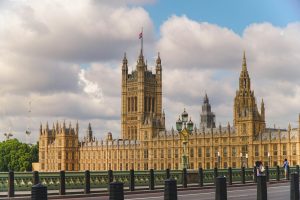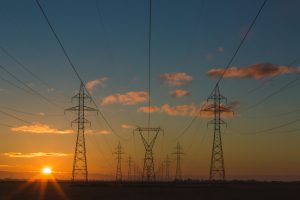As COP26 approaches, Brevia will be tracking the latest milestones in the UK’s preparations for the upcoming climate conference. This week’s developments cover the latest funding announcements to support the country’s decarbonisation targets, as well as the launch of the ‘Together for our Planet’ campaign.
1. Funding to ‘green’ the industrial sector
On Monday the Government announced £166.5 million in funding as part of its efforts to accelerate the green transformation of the country’s industrial sector. The new funding programme covers a series of research, development and deployment projects, including technologies such as carbon capture and storage, low-carbon hydrogen production and greenhouse gas removal.[1]
Specifically, £60 million has been allocated for the development of low carbon hydrogen in the UK, £37.5 million for greenhouse gas removal projects, and £20 million to support the development carbon capture usage and storage technologies. The Government has committed to deploying CCUS at scale by 2030, with the establishment for four industrial CCUS clusters. However, there are currently no operational projects in the country. [2]
The remainder of the funding will go towards innovation and research work, with £20 million set aside to establish a new virtual Industrial Decarbonisation Research and Innovation centre. A further £16.5 million will be awarded through the Industrial Energy Transformation Fund.
The latest funding announcement brings the Government one step closer to meeting some of its commitments set out in the 10 Point Plan, including supporting 250,000 green jobs, removing 10 megatons of carbon dioxide, and generating 5GW hydrogen by 2030.[3]
Additionally, on Friday, the Government announced that £44 million in funding will be awarded to three heat network projects across the country. The Government has said it hopes this will enable carbon emission reductions of up 22 per cent for homes and buildings connected to these networks, as well as reductions in energy costs.[4]
The Government also confirmed that the newly formed Net Zero Expert Group met for the first time on Wednesday, with the meeting chaired by the Business and Energy Secretary, Kwasi Kwarteng MP.
2. £300 million to deliver EV infrastructure
Ofgem has approved £300m of investment for the delivery of key EV charging infrastructure across the country, with energy network companies set to invest in over 200 low-carbon projects over the next two years. The funding will support the installation of 1,750 charge points in towns and cities, as well as 1,800 ultra-rapid car charge points in motorway service stations.[5]
The investment will be carried out by the country’s regional distribution network companies.
Under the Prime Minister’s 10 Point Plan, the Government has committed to banning the sale of new petrol and diesel cars from 2030 and phase out hybrid vehicles from 2035 in order to tackle motor emissions. However, only 11 per cent of new car registrations last year were for ultra-low emission vars. Research from Ofgem last week found that over a third of consumers polled were unlikely to get an EV in the next five years, owing to cost concerns and range anxiety. [6]
It is hoped that initiatives such as this will help tackle concerns around EV range and encourage the wider uptake of EVs.
3. PM launches ‘Together for our Planet campaign’
Friday saw the Prime Minister and the Business and Energy Secretary of State launch the ‘Together for our Planet’ business campaign. The campaign is a new initiative to encourage small and micro businesses to commit to cutting their emissions in half by 2030 and to net zero by 2050.[7]
Announcing the new initiative, the Prime Minister urged business to make use of the new UK Business Climate Hub, which provides practical tools, resources and advice to help businesses understand the steps they can take to reduce their emissions. Those who commit to net zero on the UK Business Climate Hub will be recognised by the United Nations Race to Zero campaign and will become ‘climate leaders’ – an opportunity worth smaller businesses utilising of ahead of COP26.
The announcement follows the news that the UK is the leading the way on business commitments to net zero, with over 100 UK businesses now signed up to the UN’s Race to Zero, making the UK business community the largest single contributor to the pledge.[8]
In related COP26 news, GSK has been confirmed as the latest Principal Partner for the upcoming climate conference.[9]
GSK is the ninth Principal Partner confirmed and joins SSE, ScottishPower, NatWest Group, National Grid, Sky, Sainsbury’s, Hitachi and Reckitt as Principal Partners for UN climate change summit COP26 in Glasgow.
BREVIA CONSULTING PROVIDES STRAIGHTFORWARD POLITICAL AND COMMUNICATIONS SUPPORT TO BUSINESSES AND ORGANISATIONS
Discover how Brevia can help you and your organisation by contacting the Brevia Energy Team on 020 7091 1650 or emailing us at: contact@brevia.co.uk
Notes
[1] Department for Business, Energy and Industrial Strategy (BEIS), ‘£166 million cash injection for green technology and 60,000 UK jobs’, 24 May 2021, Link
[2] The Times, Emily Gosden, ‘Carbon capture on the verge of becoming reality’, 20 May 2021, Link
[3] BEIS, ‘PM outlines his Ten Point Plan for a Green Industrial Revolution for 250,000 jobs’, 18 November 2020, Link
[4] BEIS, ‘£44 million cash boost to cut emissions from buildings and help households save on energy bills’, 28 May 2021, Link
[5] Ofgem, ‘Ofgem delivers £300 million down payment to rewire Britain’, 24 May 2021, Link
[6] Ofgem , ‘One in four consumers plan to buy an electric car in next five years according to Ofgem research’, 21 May 2021, Link
[7] Prime Minister’s Office, ‘Calling all small businesses to lead the charge to net zero’, 28 May 2021, Link
[8] Department for Business, Energy and Industrial Strategy, ‘Third of UK’s biggest companies commit to net zero’, 30 March 2021, link
[9] Cabinet Office, ‘GSK announced as a Principal Partner for COP26’, 26 May 2021, Link



